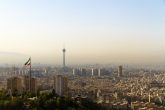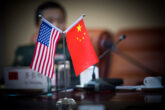August 28, 2018
Why Washington and Seoul Need to Harmonize Their Approaches to North Korea
Otherwise, Pyongyang is going to drive a wedge between America and South Korea.
For the past sixty-five years, amidst the ebb and flow of heightened tensions with North Korea, the U.S.-ROK relationship has remained the cornerstone of a successful alliance. South Korean support for the alliance remains remarkably high . But as the euphoria of unprecedented summitry with Pyongyang fades, uncertainty about the trajectory of diplomacy underscores the grave risks that inadequate coordination between the American and South Korean governments could bring to bear.
The current state of play can be summed up in one of three possible contingencies. We could either be on the cusp of a breakthrough with North Korea; on the verge of declaring experimental diplomacy with Pyongyang a failure; or mired in a permanent impasse. In either of the latter two scenarios, Washington will need to contend with the possibility that the Moon administration may forge ahead with its coveted peace deal with Pyongyang, even as denuclearization negotiations sputter.
Washington and Seoul urgently need to bring their approaches to North Korea back into alignment. In particular, the Trump administration needs to bear down on its plan for how to harmonize Seoul’s primary objective of inter-Korean peace with its own priority of ensuring North Korea’s denuclearization. The appointment of a widely respected professional in Steve Biegun to serve as full-time special envoy for North Korea certainly enhances the U.S. diplomatic team.
However, North Korea policy remains tricky. President Donald Trump’s abrupt cancellation of Secretary of State Pompeo’s planned trip to Pyongyang spotlights his growing frustration with the plodding pace of progress vis-à-vis North Korea’s nuclear program and suggests the administration may be approaching a new decision point.
Some South Koreans like to think the problem is that President Trump lacks the patience for making a deal with North Korea. Trump is undeniably impatient, but patience will not convince North Korea to start dismantling its nuclear program. The fact that South Korean Foreign Minister Kang Kyung-wha called her American counterpart to express regret at the potential loss of diplomatic momentum highlighted the gap between the two allies.
Read the Full Article at The National Interest
More from CNAS
-
“The Ayatollah Has No Clothes” – with Rich Goldberg and Richard Fontaine
Richard Fontaine is CEO of the Center for American Security, joins Call Me Back to assess the threat FROM Iran and the threat TO Iran. Listen to the full episode on Call Me ...
By Richard Fontaine
-
Lost Decade - The U.S. Pivot to Asia and the Rise of Chinese Power with Richard Fontaine
Richard Fontaine, CEO of the Center for a New American Security, joins Coffee & Conflict to discuss his book The U.S. Pivot to Asia and the Rise of Chinese Power. He dives int...
By Richard Fontaine
-
Sharper: Allies and Partners
Amid intensifying geopolitical challenges, the United States is finding new ways to address security issues by cultivating and strengthening alliances and partnerships. How ca...
By Gwendolyn Nowaczyk & Charles Horn
-
What Can the US Expect From Sri Lanka’s New President?
Washington views Sri Lanka as a “lynchpin” of its Indo-Pacific strategy and seeks a partner committed to strengthening the democratic process and economic governance while pro...
By Keerthi Martyn




